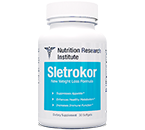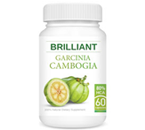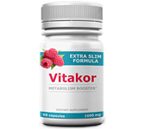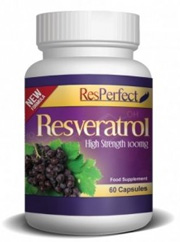
- Positive - 24
- Neutral - 36
- Negative - 44
Resveratrol Review: Is it Good for Weight Loss?
What is it?
If you’re a female, chances are you’ve heard of Resveratrol. Before it was popularized as a dietary weight loss supplement, it was referred to as the “Fountain of Youth”. This anti-oxidant is said to be age defying and beneficial to protecting one from cancer, heart issues and diabetes. Today, and has become even more popular for supposedly causing weight loss. While you can find Resveratrol in the skin of grapes, red wine, peanuts and berries, one can also purchase tablets of it.
Who makes it?
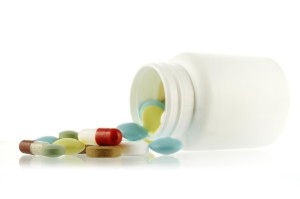 There are a variety of manufacturers and brands that make and sell Resveratrol. Some extract it from a Japanese plant called knotweed while others obtain it from the skin of grapes. Though it is sold over the counter in pharmacies and online, it is recommended to purchase particular brands that are carried only in reputable stores.
There are a variety of manufacturers and brands that make and sell Resveratrol. Some extract it from a Japanese plant called knotweed while others obtain it from the skin of grapes. Though it is sold over the counter in pharmacies and online, it is recommended to purchase particular brands that are carried only in reputable stores.
How (and) does it work?
Some animal studies have shown that large amounts of Resveratrol caused those animals to have a similar effect as a low-calorie diet. However, human studies have yet to be conducted, thus not proving any factual evidence that Resveratrol helps with weight loss.
Since different brands have varying amounts, the dosage is different for each brand. While some tablets contain 200mg, others may contain 500mg. It also is rarely mentioned that for a human to receive the equivalent amount as the animals that received benefits, that could mean ingesting up to 2g per day (2,000mg).
What’s inside of it and are there side effects?
The amount of Resveratrol in each tablet depends on the brand that manufactures it and can range from 50% – 99%.
Like so many supplements, the FDA does not monitor Resveratrol. This leaves the drug unaccountable for publically reported its full list of contents. If you are interested in finding a natural weight loss pill, please check out the top 10 diet pills derived from natural ingredients.
Some brands carry large amounts of emodin in the tablets that can act as a laxative. Emodin is expensive to extract from the Resveratrol so it is often left inside. Users have complained from a laundry list of side effects such as stomach cramps, diarrhea, headaches, nausea, cough, sore throat, rapid heartbeats and flu-like symptoms.
Long-term effects are unknown but there has been speculation that Resveratrol may be harmful to the liver. Also, large doses of Resveratrol may be linked to the formation of cancer in females.
What’s good about it?
There are many health benefits of Resveratrol, but weight loss has not been scientifically proven. Benefits could include anti-oxidant, promotes healthy skin, and helps prevent diabetes, skin cancer and colon cancer.
What’s bad about it?
 Though some users have experienced a change in their weight and there seem to be a lot of Internet “research” out there, there has been little scientific study to prove anything. Though there has been animal research regarding the effect Resveratrol has on weight loss and life expectancy, there hasn’t been anything done to show the impact it makes on human bodies. Some scientists and doctors are unable to confirm benefits.
Though some users have experienced a change in their weight and there seem to be a lot of Internet “research” out there, there has been little scientific study to prove anything. Though there has been animal research regarding the effect Resveratrol has on weight loss and life expectancy, there hasn’t been anything done to show the impact it makes on human bodies. Some scientists and doctors are unable to confirm benefits.
Not to mention, they are unsure of any long-term effects for anyone. While nothing severe has been noted in moderate use, Resveratrol could be harmful if taken with any kind of blood thinner like Coumadin as well as Tylenol or Ibuprofen.
Wrap Up
While everyone is eager for the Fountain of Youth to appear, Resveratrol hasn’t been scientifically proven to be the missing key. Though natural vitamins and anti-oxidants exist within this compound, it is still too uncertain to know what high levels could do to human bodies. You may find a better product for you that is the same amount of money or even less.
Bottom Line:
Since hard evidence is lacking, not only with the long term effects of Resveratrol but if it is effective at all at helping humans lose weight, it may be best to avoid. With so many diet pills out there today, I’m sure you could find something better.
We strongly recommend looking into the top rated natural diet pills that are on the market today.
Receive a Weekly Newsletter from CGH

